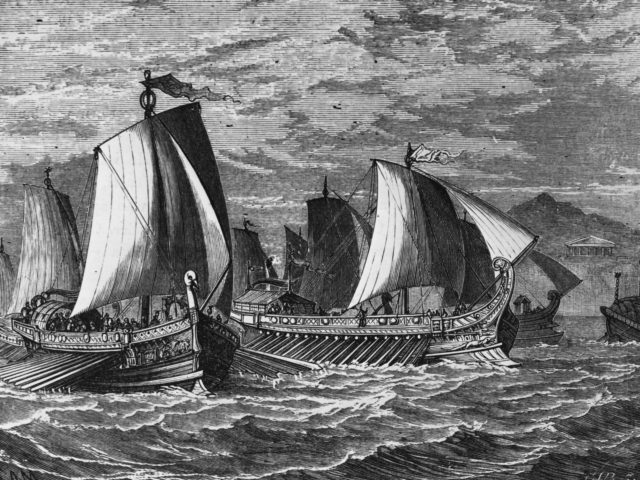The Mediterranean Sea was considerably warmer during the period of the Roman Empire 2000 years ago than it is today, according to a new study published in Scientific Reports.
The period of the Roman Empire, which ran from 27 BC to 476 AD, coincided with warmest period of the last 2,000 years in the Mediterranean, found the 8-member international team of researchers led by Giulia Margaritelli.
Employing ratios of magnesium to calcite taken from skeletonized amoebas in marine sediments, an indicator of sea water temperatures, the researchers determined that the Roman Period (1 AD – 500 AD) was the warmest of the last 2 millennia, “about 2 °C warmer than average values for the late centuries for the Sicily and Western Mediterranean regions.”
Moreover, the study found that “this pronounced warming during the Roman Period is almost consistent with other marine records from Atlantic Ocean and with the continental anomaly reconstruction from Europe,” a climate phase that “corresponds to the so-called ‘Roman Climatic Optimum’ characterized by prosperity and expansion of the empire.”
“For the first time, we can state the Roman period was the warmest period of time of the last 2,000 years, and these conditions lasted for 500 years,” said team member Professor Isabel Cacho of the Department of Earth and Ocean Dynamics, University of Barcelona.
“After the Roman Period a general cooling trend developed in the region with several minor oscillations,” the scholars note, while hypothesizing a “potential link between this Roman Climatic Optimum and the expansion and subsequent decline of the Roman Empire.”
The study purports to offer “critical information to identify past interactions between climate changes and evolution of human societies and their adaptive strategies.”
Last month, another study proposed that a massive volcanic eruption in Alaska 40 years before Christ’s birth sparked a global climate shock in Europe that led to the fall of the Roman Republic and the subsequent rise of the Roman Empire.
The fall of the Roman Republic and rise of the Roman Empire “occurred during an extreme cold period resulting from a massive eruption of Alaska’s Okmok volcano early in 43 BC,” the study declared.
Climate proxies and written documents indicate that a power struggle in Rome “occurred during a period of unusually inclement weather, famine, and disease in the Mediterranean region,” the researchers note, adding that “volcanic fallout records” show that one of the largest volcanic eruptions of the past 2,500 years occurred in early 43 BC and that 43 and 42 BC “were among the coldest years of recent millennia in the Northern Hemisphere at the start of one of the coldest decades.”

COMMENTS
Please let us know if you're having issues with commenting.